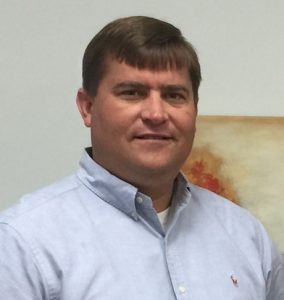By Brant Kairit

Witnessing ‘gracism’ firsthand
I was fortunate enough to be able to participate in a collegiate sport. And one thing you learn in training is there is no such thing as simply maintaining your current level. You have two options: You are either getting better or you are getting worse.
In a lot of ways, life, in general, isn’t much different. If you have spent any time participating in social media or watching the news the past few years, you probably join me in believing that the world we currently live in is not getting better. If you imagine that as a society we will continue down this current road, you must agree that the future, our future, is not very promising. I believe that most people would like for things to improve.
I believe many of these same people simply do not know of a way to implement change and bring progress — that is why I chose to try and find a way to make things better.
I looked into numerous groups that purported to have the answer to racial reconciliation. After learning a little more about these groups, I always found myself disappointed in their plan. None of them were very good at getting people from varying backgrounds to have discussions about their differences.
After two years of not being able to find what I felt was the answer, I became aware of Mission Mississippi. I was initially intrigued by the way Mission Mississippi talked about “gracism” — the act of extending the grace that we have experienced from Jesus Christ to promote racial reconciliation.
I believe that for old wounds to heal, one must be able to forgive. And dialogue and healing are at the forefront of Mission Mississippi’s statewide events. These events usually consist of a forum of presenters, roundtable discussions and a luncheon with speakers. I enjoy hearing the speakers, but I really enjoy the roundtable discussions and having the opportunity to see a situation from another person’s perspective.
At the governor’s luncheon two years ago, I was participating in a roundtable discussion where I heard an older white preacher apologize for how he had been taught some stereotypical racial thoughts as a child. A few minutes later at our table, a middle-aged black pastor told the white preacher that he had nothing to apologize for. The black pastor understood the preacher was a child at the time and the preacher had now matured and changed over the years.
It was unbelievably uplifting to witness the act of “gracism” that this middle-aged black pastor had shown for this older white preacher. This further confirmed my thoughts that Mission Mississippi had found the formula for improving race relations in our world.
I think Mission Mississippi has found the best way to help solve what, in my mind, is the biggest current problem facing humanity. That issue is learning how to get along with people not like ourselves. Whether that means old/young, rich/poor, black/white, etc., Mission Mississippi has found a way to bring people of differing backgrounds together through the body of Christ in order to improve communities throughout our great state of Mississippi.
They do this by encouraging people to spend time together in order to build a foundation of love and trust. They base this on the Bible and inspire people to follow the lead of the greatest forgiver to ever live, our Lord and Savior, Jesus Christ. After this foundation of trust has been built, honest and open discussions are started to look at the issues that continue to impede relationship building between unlike groups.
In Tate County, we have started a Mission Mississippi chapter that meets once a month for breakfast. We have recently started some small groups that are meeting at least once per month in an environment that is more conducive to building relationships. These small groups have allowed those participating to get to know each other better and discuss the things they have in common. This experience also helps individuals learn to look at a situation through the eyes of another person not like them.
In my opinion, it is this newfound perspective that is crucial to “racial reconciliation.”
Brant Kairit is a Christian, a husband, a father of three and a dentist in Senatobia. He aspires to leave this world better than it was at his birth.